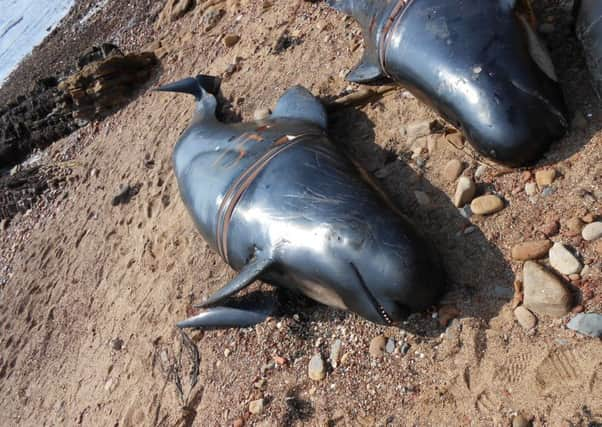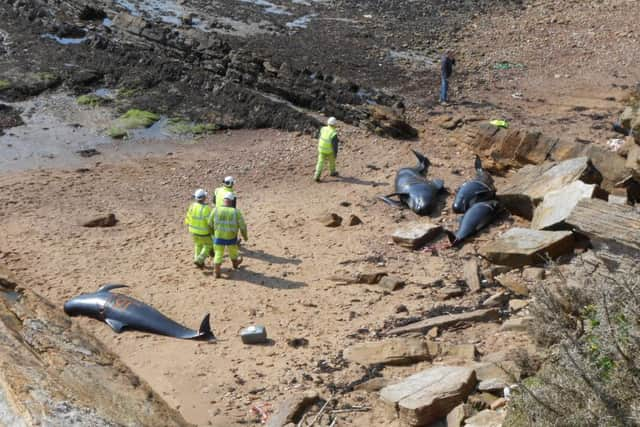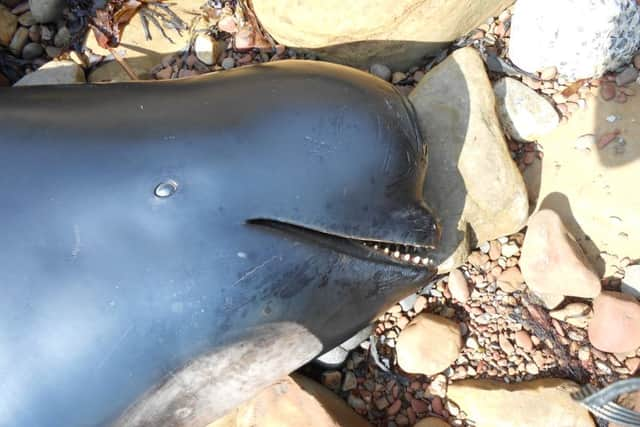Beached Fife whales had high levels of toxic chemicals


Investigations by scientists at the University of Aberdeen and the Scottish Marine Animal Stranding Scheme have shown that 21 long-finned pilot whales that perished on a beach in Fife in 2012 had enough mercury in their systems to cause severe neurological damage in humans.
The findings also proved for the first time that the poisonous element cadmium can cross the blood-brain barrier.
Advertisement
Hide AdAdvertisement
Hide AdThe dead whales were part of a 31-strong pod that stranded on the shore between Anstruther and Pittenweem on 12 September 2012. Rescuers were able to refloat ten of the mammals but 21 died.


The new report shows a clear correlation between increasing levels of toxins and the advancing age of the animals, suggesting the concentration of pollutants builds up throughout their lifetimes.
The researchers say this could mean pilot whales were less susceptible to the deadly effects of mercury than humans but could also point to poisoning as a factor in whales beaching.
“This pod of whales provides unique new insights because we were able to look at the effects on a large number of whales from the same pod and how this varied according to age,” said Dr Eva Krupp, an environmental analytical chemist at the university.
Analysis revealed the amount of mercury in the whales was highest in the oldest animals, which ranged from under one to 36 years old.


The highest mercury levels were found in the brains of whales over nine years old – some had concentrations beyond that which would cause severe neurological damage in humans.
“We can see clear evidence that mercury is being transported through the bloodstream to all organs, where it accumulates over the lifespan,” Dr Krupp said.
She said a similar effect could be seen with cadmium.
“It’s known cadmium can penetrate the blood-brain barrier in the newborn or developmental stages but it was not thought to do so in adults.


Advertisement
Hide AdAdvertisement
Hide Ad“Our findings are significant because we can demonstrate for the first time that cadmium is in the brain tissue and that its levels increase with age.”
She added: “More research is needed to investigate whether this is a factor in strandings, particularly where other explanations such as illness or weather events cannot be found.”